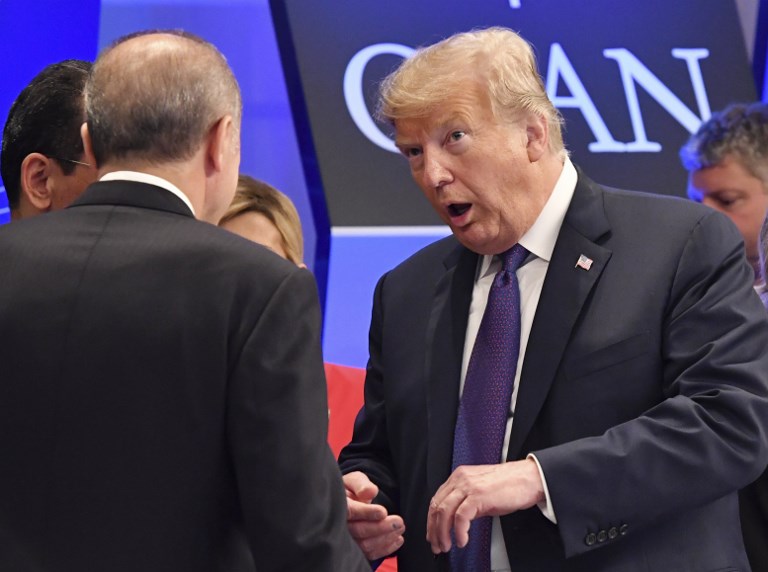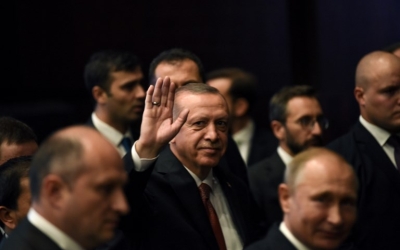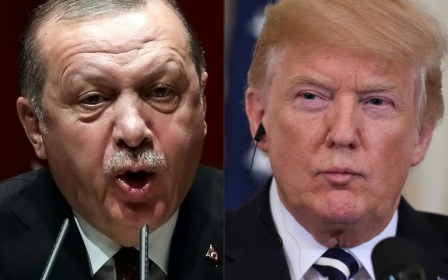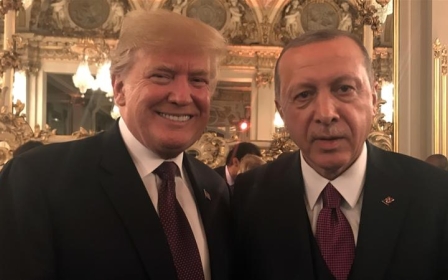Ankara and Washington's missile crisis: Can the S-400 rift be mended?
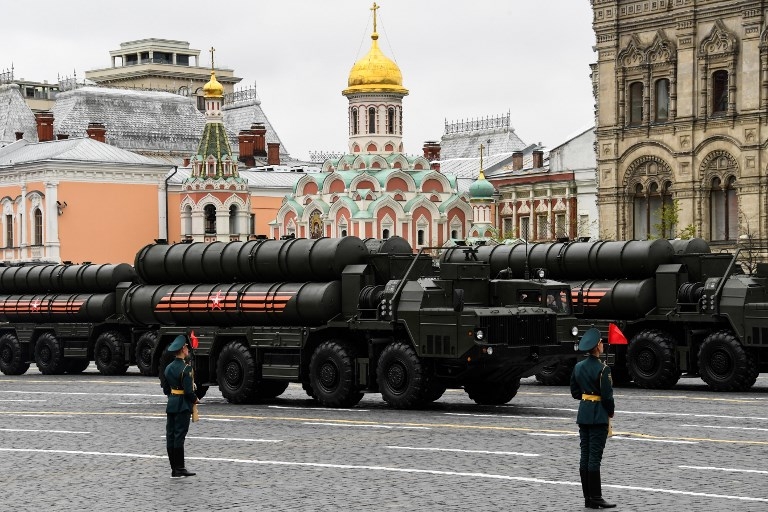
Turkey's purchase of a Russian-made S-400 missile defence system, recently discussed in Western newspapers as a mysterious new topic forming part of Turkey's secret agenda, is actually an old story that has been well-known for years.
Turkey has been in contact with Russia for the purposes of fulfilling its missile-defence needs for about two years, and Ankara has been in search of such a system since late 2011.
The fact that Turkey has been working to establish close contacts with Nato member states to obtain a missile defence system can be gleaned through a simple Google search. In 2011, Nato deployed its radar system in Turkey's Malatya province.
Demands unanswered
Those who today criticise Turkey's S-400 purchase from Russia - in Washington and other Nato capitals - are also those who left Turkey's demands unanswered between 2011 and 2017.
New MEE newsletter: Jerusalem Dispatch
Sign up to get the latest insights and analysis on Israel-Palestine, alongside Turkey Unpacked and other MEE newsletters
Turkey had underlined three priorities in the discussions over its missile-defence needs, related to the system's technological dimensions, costs, and joint production opportunities.
In a tender initiated after 2012, Turkey began to consider a bid from China, but in the ensuing years other bids were submitted by the Italian-French manufacturer Eurosam and the US firm Raytheon.
The Trump administration - which itself has called into question Nato's raison d'etre - appears to have suddenly remembered the significance of the alliance
Turkey incited a reaction from Washington, which expressed serious concern, by seeking bidders outside of the Nato alliance, but when the bidding process ended in 2015, Turkey announced that it had withdrawn from China's offer, calling it the "most expensive among all the bids".
When the Russia S-400 talks first attracted media scrutiny in late 2016, Turkey's Ministry of National Defence was still declaring in its statements that it was willing to purchase the missile system from Nato states. Ultimately, however, the Russia deal evolved into a purchasing process, with the systems set for delivery to Turkey in July.
American hypocrisy
The most interesting aspect of this saga is that when it comes to Turkey, the Trump administration - which itself has called into question Nato's raison d'etre - appears to have suddenly remembered the significance of the alliance, Russia and even the Cold War. It is pure hypocrisy that the US has imposed sanctions on Turkey, in part over the missile-defence purchase.
Washington had started to drift apart from Turkey after the Arab uprisings, and the distance increased after the 2016 failed coup attempt. In Syria, US support for the Kurdish People's Protection Units (YPG), which Turkey views as an extension of the outlawed Kurdistan Workers' Party (PKK), exacerbated the rift.
Washington's focus on the S-400 issue has deepened the bilateral crisis, leaving Turkey with three options.
Firstly, Turkey could make the radical decision to abandon its purchase, incurring no heavier costs than its financial obligations for bowing out of the agreement with Russia. Considering the increasing pace of political, commercial and military relations between the two countries, such a decision could be rationally managed by both.
The path forward
A second possibility is that Washington could take radical steps to halt all security cooperation with Ankara. The US reaction to Turkey's S-400 purchase was highly reactive, including a declaration to block the transfer of already purchased F-35 jets. Such a development, however, would not only set off a serious political crisis with Turkey, but it would also create a lack of confidence for all countries that engage in the arms trade with Washington.
A third possibility, which appears more likely than the previous two, would be for Turkey's S-400 purchase to go ahead, provided that it could find a technical solution between Nato systems and the S-400 Russian system to protect geopolitical and military relations.
On Thursday, Joint Chiefs of Staff chairman General Joseph Dunford said: "I think both the executive branch of our government, the legislative branch of our government, are gonna have a hard time reconciling the presence of the S-400 and the most advanced fighter aircraft that we have, the F-35.
"And so our position has been made very clear to Turkey, and we're hopeful that we can find a way through this. But it's a tough issue."
Considering the Trump administration's heavy rhetoric but poor track record in crisis management, it would appear that there is a path towards de-escalating the current tensions gripping Ankara and Washington.
But with President Donald Trump's penchant for sudden, radical decisions - such as his tweeted call to withdraw from Syria - it is difficult to predict where this saga will lead next.
The views expressed in this article belong to the author and do not necessarily reflect the editorial policy of Middle East Eye.
Middle East Eye delivers independent and unrivalled coverage and analysis of the Middle East, North Africa and beyond. To learn more about republishing this content and the associated fees, please fill out this form. More about MEE can be found here.



